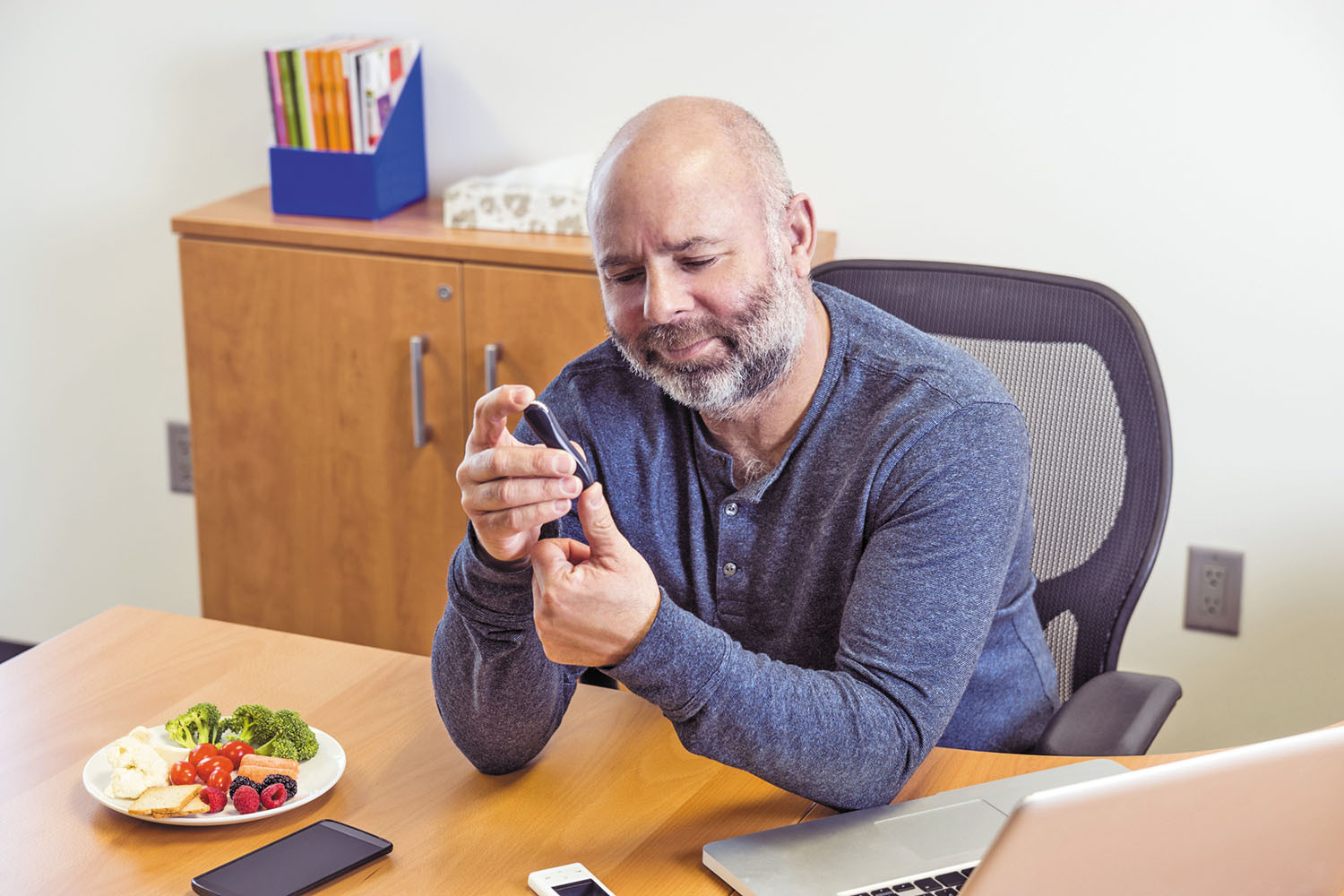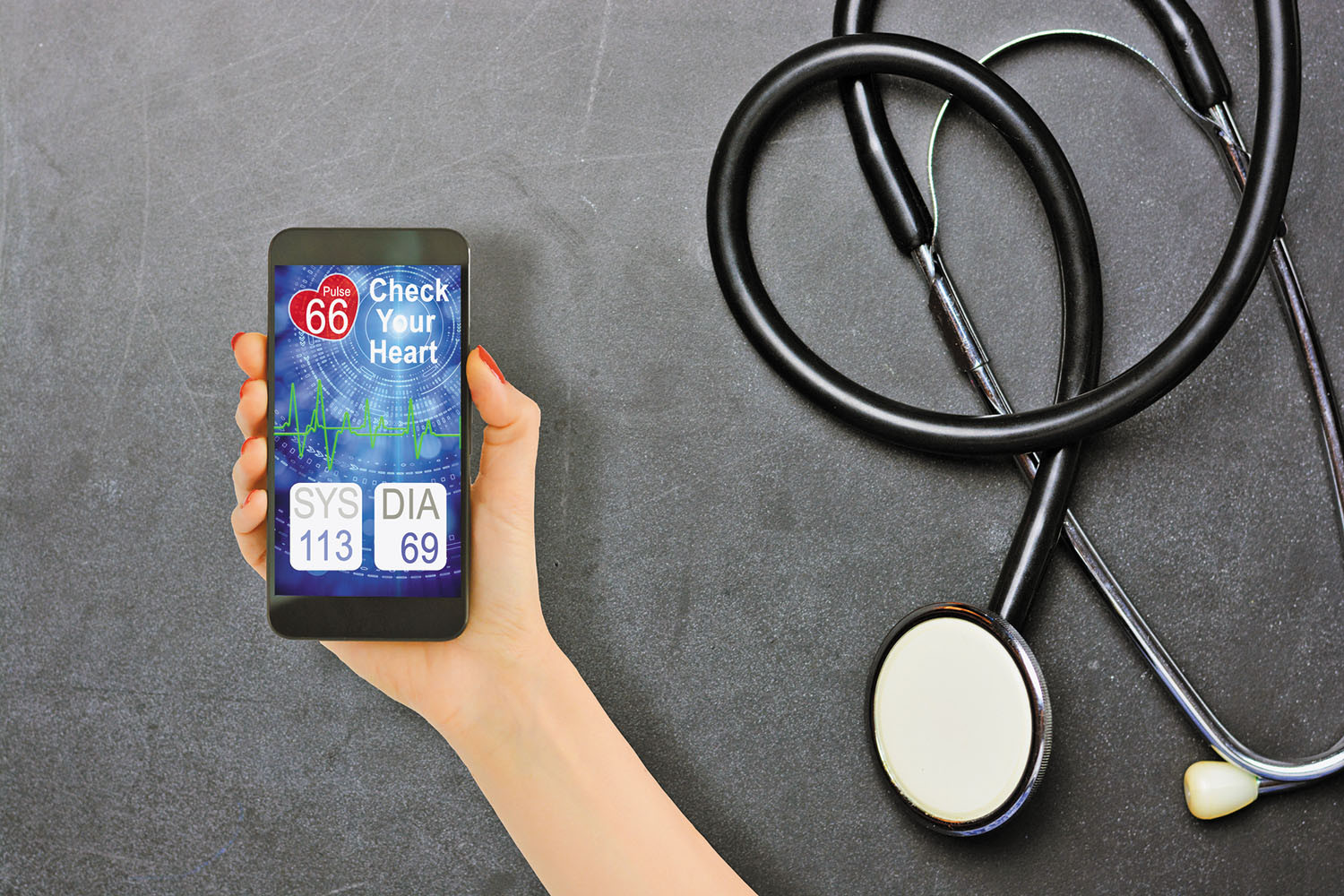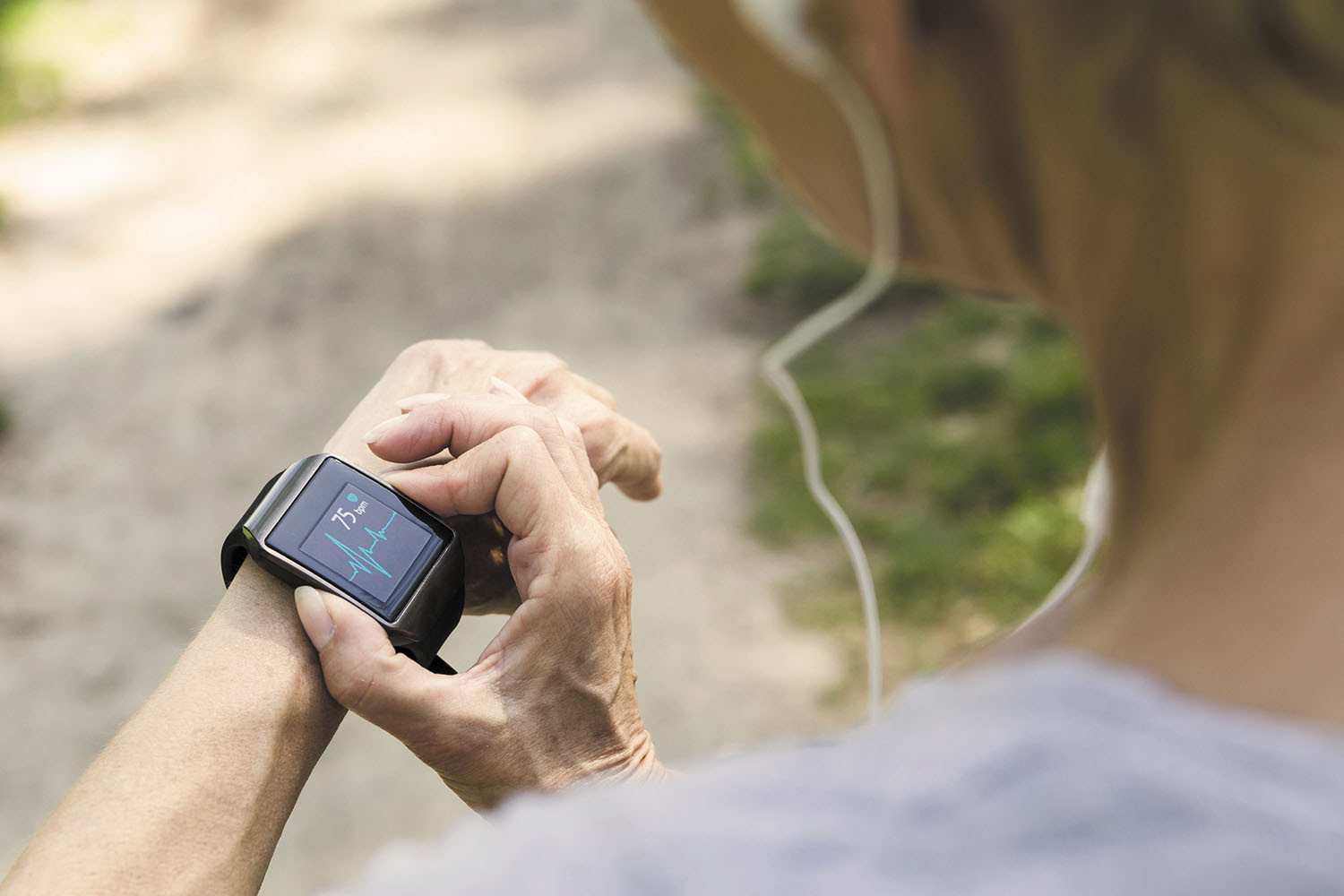
5 timeless habits for better health

What are the symptoms of prostate cancer?

Is your breakfast cereal healthy?

When pain signals an emergency: Symptoms you should never ignore

Does exercise give you energy?

Acupuncture for pain relief: How it works and what to expect

How to avoid jet lag: Tips for staying alert when you travel

Biofeedback therapy: How it works and how it can help relieve pain

Best vitamins and minerals for energy

Should you take probiotics with antibiotics?
Medical Devices & Technology Archive
Articles
Transforming the treatment of diabetes
Technology may help to provide more supportive, efficient, and effective care for diabetes, a leading contributor to heart disease.
About one of every 11 adults in this country has diabetes — a chronic, costly condition that's closely connected to heart disease. Lifestyle changes that encourage eating healthy foods, exercising, and losing weight are the cornerstone of managing both problems. But making those changes can often feel overwhelming and frustrating, especially for people with diabetes. They also need to keep tabs on their blood sugar levels, which are influenced by what and when they eat and exercise.
And getting effective support for managing diabetes with lifestyle changes isn't easy. "The current system for managing diabetes is broken," says Dr. Osama Hamdy, medical director of the Obesity Clinical Program at Harvard-affiliated Joslin Diabetes Center. For starters, there aren't nearly enough endocrinologists for the millions of people with diabetes in this country. Appointments with these specialists are often too short and too infrequent for people to make meaningful progress, he explains.
What is an implanted cardioverter-defibrillator, and who needs one?
Learn how these high-tech devices can save — and change — your life.
Defibrillators are devices that can detect — and correct — potentially deadly heart rhythms. The most common is ventricular fibrillation, which makes the heart's lower chambers (ventricles) quiver without actually squeezing and pumping. Blood stops flowing to the brain and other organs, causing the person to pass out. Death can occur within minutes.
A quick jolt of electricity can restore the heart's normal rhythm, however. The shock can be delivered from outside the chest with an automated external defibrillator (AED). Located in many public places, these portable devices can be used by medical personnel as well as untrained people, thanks to audible prompts that explain what to do. But some people are candidates for an implantable cardioverter-defibrillator (ICD), a miniature electronic device placed under the skin below the collarbone (see illustration).
Cyber security risk sparks implanted device recalls
News briefs
As we reported last year, advances in digital health monitoring — such as implantable sensors to detect irregular heartbeats — are changing the way health is managed. The gadgets are programmed wirelessly and can transmit information to your doctor's office or to other gadgets, such as an external blood sugar monitor that tells an implanted pump how much insulin to release. But it's unclear if the devices are safe from hackers who could illegally access your information, steal your identity, and even make an implanted device malfunction. Now the FDA is warning that certain insulin pumps — the Medtronic MiniMed 508 series and MiniMed Paradigm series pumps — are at risk of being hacked. Medtronic recalled the pumps in June, estimating that at least 4,000 people are at risk. The FDA says Medtronic will provide alternative pumps.
Talk to your doctor to get the process started or if you're concerned that your pump's settings have been changed. In March, the U.S. Department of Homeland Security issued similar warnings about 750,000 Medtronic implantable cardioverter-defibrillators. Medtronic did not recall them but is working on a software update to improve security.
Smartphone apps for managing heart disease
Apps that pair with devices that record data may help your doctor fine-tune your treatment.
Health-related smartphone apps are a dime a dozen, but some are more sophisticated than others. Of special interest for people with heart disease are apps that pair with devices that measure your blood pressure, your heart's electrical activity, or your weight. Data from these apps may help doctors make faster and better informed treatment decisions for their patients, says Dr. Eric Isselbacher, who heads the Healthcare Transformation Lab at Harvard-affiliated Massachusetts -General Hospital.
App acceptability
Contrary to popular belief, the 65-plus crowd is comfortable using apps, says Dr. Isselbacher, who co-authored a recent study looking at the willingness of heart patients to use apps and related technologies. Compared with millennials, older people have been slower to adopt and adjust to smartphone apps. But now that they're using them for ride-hailing services and the like, they recognize that apps are actually pretty simple to use.
Pacemaker concerns
Ask the doctor
Q. I'm getting a pacemaker to treat a slow heart rate and am wondering how it might affect my daily life. For instance, can I still exercise? Is it safe to go through airport security scanners and to have medical imaging tests?
A. Pacemakers are small, implanted electronic devices that monitor your heart's rhythm and, when necessary, generate a painless electrical impulse that triggers a heartbeat. The latest models not only help people stay active later in life, they're also more compatible with today's technology.
Heart rhythm monitoring with a smartwatch
These wrist-worn devices are better than ever at gathering data. But it's still too early to use them to screen for atrial fibrillation.
The original wristband monitors were pretty basic: they tracked your movement and tallied your daily steps. But before long, these digital devices could also estimate your heart rate, thanks to a sensor that measures changes in blood flow through your skin. Now, there are smartwatches with special sensors that can record a tracing of your heart's electrical signature (electrocardiogram or ECG) and alert you if it detects an irregular rhythm.
Last fall, the FDA granted Apple approval for the ECG sensor and an app that includes an algorithm to detect atrial fibrillation, or afib, the most common heart rhythm disorder (see "What is atrial fibrillation?"). While the Apple Watch Series 4 is the first of its kind to offer this feature, other companies have similar technologies in the works.
What is sick sinus syndrome?
Ask the doctor
Image: © Zinkevych/Getty Images
Q. After I experienced a few fainting episodes, I was diagnosed with sick sinus syndrome. My doctor says I might need a pacemaker. Can you tell me more about this condition?
A. Despite the name, sick sinus syndrome has nothing to do with your nasal passages. Instead, it refers to various heartbeat irregularities that can cause dizziness, fainting, or shortness of breath. Most cases are due to age-related changes in the heart muscle that disrupt the heart's electrical system. Sometimes, another form of heart disease or medication that slows the heart is to blame. Sick sinus syndrome is most common in people in their 70s and 80s.
Managing mitral valve disease: Progress and promise
Operations to fix faulty mitral valves are on the rise. But less invasive nonsurgical strategies are under development.
The mitral valve — so named because it resembles a miter, a bishop's formal headdress — sits between the two chambers on the left side of your heart. Inherited conditions, diseases, or a combination of the two can cause changes in the size, shape, flexibility, or mechanics of the mitral valve, leaving it unable to close properly. When that happens, blood may flow backward between heartbeats, a problem called regurgitation.
While mild cases are generally harmless and cause no symptoms, more severe cases can increase the heart's workload, leading to breathlessness, fatigue, and other symptoms. Mitral valve regurgitation also produces a distinct sound (heart murmur) that a doctor may hear through a stethoscope.
New nasal spray may stop rapid heart rhythm
Research we're watching
An experimental nasal spray shows promise for quickly treating an abnormally fast heart rhythm known as supraventricular tachycardia (SVT), a new study reports.
Caused by an electrical misfire that overrides the heart's natural pacemaker, SVT occurs unpredictably, lasting anywhere from minutes to hours. Although usually harmless, the condition can make people dizzy or lightheaded. People with persistent SVT usually need to go to an emergency room for an injection of a drug to slow the heart.
Rating heart monitors
Here is why you should invest in this fitness technology.
Image: © Nastasic/Getty Images
There is a lot of technology that tracks your health, from counting steps to counting burned calories. One of the most valuable fitness tools though is a heart rate monitor, which tells you how many beats your heart takes per minute.
"Whether you're just getting started with an exercise routine or are a committed fitness enthusiast, tracking your heart rate can help you maintain the necessary moderate level of intensity for optimal benefits without worrying about doing too much or too little," says Dr. Aaron L. Baggish, associate director of the Cardiovascular Performance Program at Harvard-affiliated Massachusetts General Hospital.

5 timeless habits for better health

What are the symptoms of prostate cancer?

Is your breakfast cereal healthy?

When pain signals an emergency: Symptoms you should never ignore

Does exercise give you energy?

Acupuncture for pain relief: How it works and what to expect

How to avoid jet lag: Tips for staying alert when you travel

Biofeedback therapy: How it works and how it can help relieve pain

Best vitamins and minerals for energy

Should you take probiotics with antibiotics?
Free Healthbeat Signup
Get the latest in health news delivered to your inbox!
Sign Up











